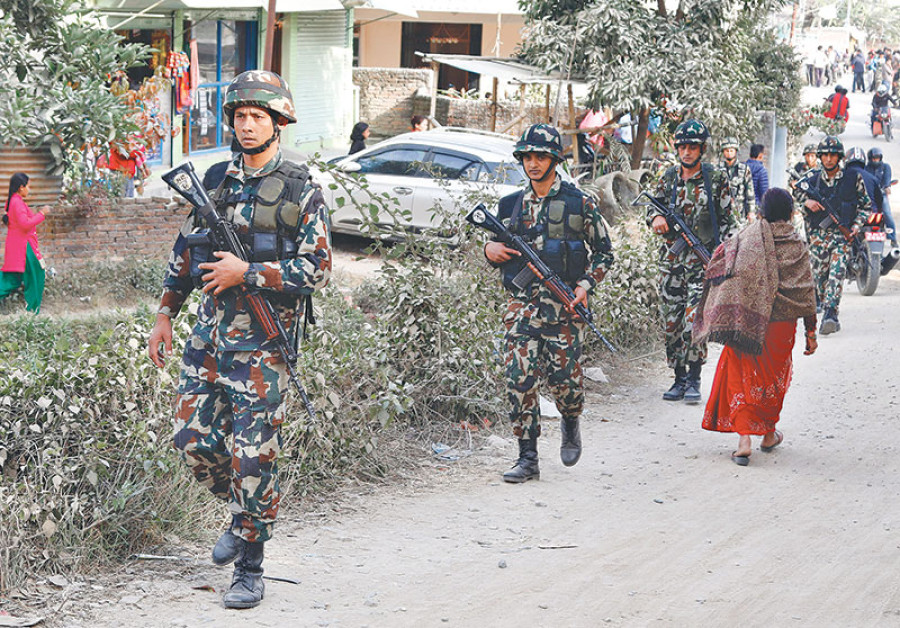National
US clears four Army units on human rights
Four Nepal Army units, which were among a dozen units under the US government restrictions for severe human rights violations during the decade-long Maoist insurgency, have cleared the human rights vetting, according to a document released by the outgoing Army chief touting his accomplishments during his tenure.
Binod Ghimire
Four Nepal Army units, which were among a dozen units under the US government restrictions for severe human rights violations during the decade-long Maoist insurgency, have cleared the human rights vetting, according to a document released by the outgoing Army chief touting his accomplishments during his tenure. Although the restrictions were lifted after 2017, the news of the clearance and its details had not been revealed until Thursday.
Before the units were cleared of human rights violations, the Army’s No 4 and No 9 regiments and the Rajdal Battalion were barred from receiving logistical support from the United States government while the soldiers and senior military officials within those units were denied a visa to travel.
The Kavrepalanchok-based Birendra Peace Operation Training Centre (BPOTC), where 15-year-old Maina Sunuwar was killed after she was detained and tortured in 2004, is among the four units that were cleared in the vetting. Sunuwar was detained from her home in Kharelthok by soldiers accusing her of having links with the Maoist rebels. She was killed and then buried inside the training centre.
Talking to the Post, Army Spokesperson Brig Gen Gokul Bhandari said the vetting was done in the last two years by representatives of the US government after field visits and evaluation of the units’ track records in recent years.
The US Embassy in Kathmandu told the Post that the US State Department evaluates and assesses available information from a variety of classified and unclassified sources about the human rights records of the unit and/or the individual, reviewing a full spectrum of open source and classified records.
“As part of the normal vetting process, we determined that the BPOTC met the standards of a fundamentally different unit from the one that had committed a gross violation of human rights in 2004,” a spokesperson at the US embassy, who spoke on condition of anonymity because they weren’t allowed to speak about the clearance, told the Post in an email.
Other units, including the Maharajgunj-based Bhaira-bnath Battalion, however, continue to face restrictions by the US government. A report of the UN Office of High Commissioner for Human Rights published in 2006 said at least 49 people were disappeared by soldiers from the Bhairabnath Battalion barracks in 2003.
In a lengthy statement during his farewell, outgoing Army chief Gen Rajendra Chhetri also said revocation of the ban in lethal assistance by the US government was a visible sign of the Army’s military diplomacy.
The US spokesperson said Washington’s decision to allow Nepal to import lethal weapons is to support the ongoing peacekeeping efforts and other initiatives of joint strategic purpose. The US government had imposed the ban in 2005 after then king Gyanendra took over power in a coup.




 16.12°C Kathmandu
16.12°C Kathmandu














